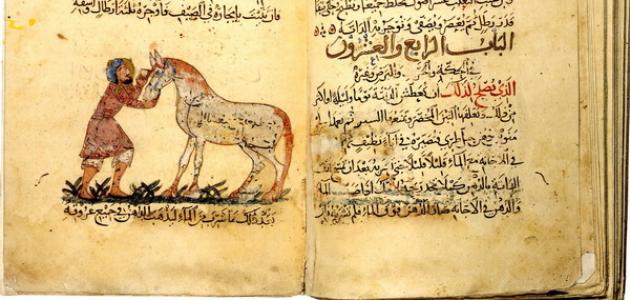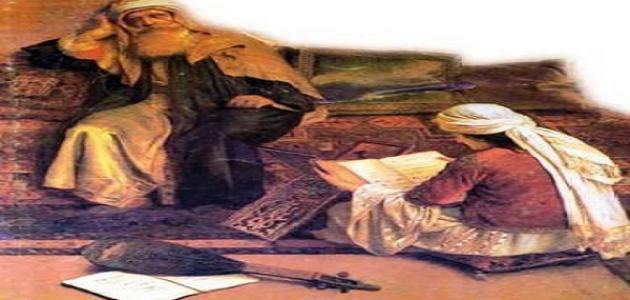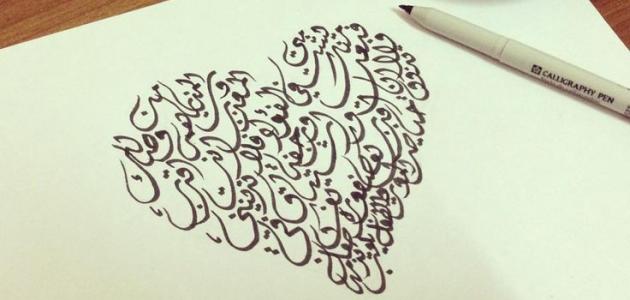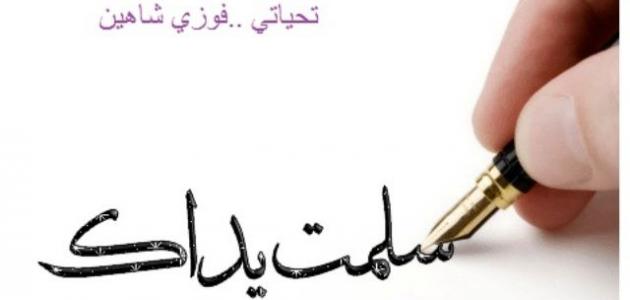Pre-Islamic Poetry
Poetry in the language means: measured speech that rhymes intentionally, and it is idiomatically - according to the point of view of logicians -: a saying composed of imaginary matters, and in its content indicates enticement or alienation. In terms of influence and imagination, except that it is done without weight, and it is said: I wish my poetry had not been made by so-and-so; I wish I knew what he did. Poetry can also be defined as: eloquent speech based on descriptions and metaphors, and it is written according to detailed parts that agree in meter and narration.
As for pre-Islamic poetry, it can be defined as: a description embellished with evidence of the life of the pre-Islamic era and its ideas, through which the Arabs reflected a true picture without embellishment or distortion. , their traditions, and their battles, and a description of the nature of the life of the pre-Islamic environment, and what it contains of inanimate objects, and animals, in addition to mentioning the names of their knights, their water wells, and other events, and information in the pre-Islamic period, and this poetry also included many poets with intelligence, eloquence, and the most important These poets are the poets of the Mu’allaqat, such as: Imru’ al-Qais, Antarah al-Absi, and Zuhair bin Abi Salma, in addition to many collections of poets and female poets, whose poetry has reached us in full. It is worth mentioning that pre-Islamic poetry was considered an important record of the life of the Arabs before Islam, as It has been a reliable source of information; Where linguists relied on this poetry in establishing the rules of grammar, and verifying their correctness, and scholars of jurisprudence and interpreters of the Holy Qur’an resorted to pre-Islamic poetry. To show the meanings of words, and their occurrence in the language.
Read also:What is the hardest parting?Pre-Islamic poetry arose in the valleys of Najd, the Hijaz, and the surrounding areas of the north of the Arabian Peninsula, bearing in mind that the desert was considered the school in which poets of intelligence, such as: Al-Muhalhal, Hatim Al-Ta’i, Tarfa bin Al-Abd, Al-Nabigha, and Al-Asha, were not limited to In pre-Islamic poetry, only one poem was written, but most poets wrote more than one poem, and each poet was known for his poems and was distinguished by them. And those who have mastered and mastered this job; As the poet who wants to compose poetry and formulate it appoints another poet to tell his poetry about him and publish it.
Pre-Islamic poetry characteristics
Pre-Islamic poetry has many advantages and characteristics that distinguish it from other poetry, and these characteristics are:
- In moral terms:
- The Bedouin character and the connection with the environment: pre-Islamic poetry is considered a mirror of the life of the desert in its various aspects. In its content, it depicted geographical features, cosmic phenomena, and plants, in addition to describing the animals of the desert, and the Bedouin communities’ system of homes, homes, and caravans. The repetition of vocabulary and meanings, and the impact of the Bedouin character was evident in pre-Islamic poetry, and in the natures of its poets.
- Realism and Clarity: Pre-Islamic poetry was able to present a simple, clear, and realistic image of the environment, so that this perception fits with Bedouin instinct and Bedouin society. What we mean here is not naivety; Pre-Islamic poetry indicates in its content mental clarity, mental sophistication and the ability to write poetry and formulate its meanings optimally.
- Briefness: The poets of pre-Islamic poetry resorted to avoiding meditation and prolonging the content of poetry when it was composed. The nature of Bedouin life was fast, constant, and continuous.
- Simplicity in thinking: Pre-Islamic poetry included simple structures and meanings that were not overshadowed by complexity or ambiguity, so that this simplicity in meanings was commensurate with the lives of poets and their way of thinking. Therefore, we find that pre-Islamic poetry included topics that were characterized by sensuality or materialism, and kept away from the spiritual and moral horizons.
- Life and movement: The poetic image in pre-Islamic poetry was characterized by movement and its conformity to reality. It resembles living bodies that move, rotate, run, and sometimes act out.
- Collective spirit: The collective spirit appears clearly in pre-Islamic poetry. Because the poets spoke in most of their poems about the tribe; These poems included the plural form, just as the personal aspects appeared in pre-Islamic poetry. As it is sentimental poetry, however, the personal aspect did not prevail over the collective aspect in pre-Islamic poetry.
- Formally:
- Preserving poetic traditions: when poets composed poetry, they adhered to a set of specific traditions in their various poems, and among these traditions: standing on the ruins, crying, the speech of antiquities, or friends, then describing the poet’s condition; Because of the departure of the beloved, and the description of her beauty, and after that, he moves to his main purpose in the poem, and the skilled poet is distinguished from other poets in the good connection between these topics, and the transition smoothly between them.
- Taking care of words and expressions: where poets (especially those with annuals) paid great attention to poetic words in their poetry, and investigated them well so that they fulfill their meaning and purpose, and affect their content on the listeners. And the reader in pre-Islamic poetry may find some strange and unknown words in our time, but that does not mean that the poets chose non-existent or strange words in their poems, rather it means that they used to choose the well-known words that were widespread in their societies at the time, knowing that these words are a stranger has appeared to us; Because of the time differences, and our lack of use of them, in addition to the fact that the poet had to preserve the rhyme of the verses.
- Unity: Pre-Islamic poetry was distinguished by achieving the musical timbre in all the stanzas of the poem, which indicates the high linguistic ability of the poets of that time.
- The formulation of the creative modifiers in an instinctive manner: the creative modifiers in the pre-Islamic poetry were distinguished by proper formulation, without affectation or effort, as their poems included metaphor, analogy, counterpoint, metaphor, metaphor, and assonance.
Pre-Islamic poetry purposes
The purposes of pre-Islamic poetry are meant: the subjects in which pre-Islamic poets composed their poems, and among the purposes of pre-Islamic poetry:
Read also:Definition of poetry- Pride: And this is in the event that the poet wants to express in his poetry his pride in himself, or pride in his tribe.
- praise: And this is in the event that the poet wants to express admiration for a person in his poetry, in his courage, generosity, or other good qualities.
- spelling: And this is in the event that the poet wants in his poetry to harm someone and degrade him.
- Lament: And this is in the event that the poet wants in his poetry to show sorrow and sadness from a situation or a person.
- the description: And this is in the event that the poet wants in his poetry to draw a wonderful picture of pure imagination about a situation, or a person.
- spinning: This would be if the poet wanted to express his conversation with women.
- wisdom: And that would be if the poet looked at the universe and people's lives.
- apology And this is if the poet sympathizes with his poetry, a prince, or someone else.









